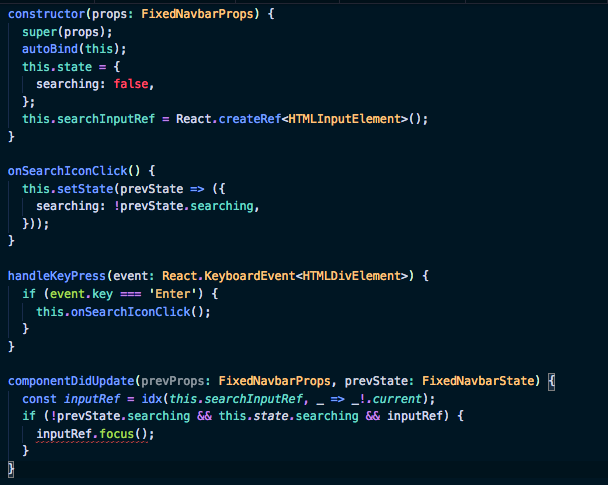This module is deprecated and no longer maintained. Use optional chaining instead.
idx is a utility function for traversing properties on objects and arrays,
where intermediate properties may be null or undefined.
One notable difference between idx and optional chaining is what happens when
an intermediate property is null or undefined. With idx, the null or undefined
value is returned, whereas optional chaining would resolve to undefined.
$ npm install idx babel-plugin-idxor
$ yarn add idx babel-plugin-idxConfigure Babel to include the
babel-plugin-idx Babel plugin.
{
plugins: [['babel-plugin-idx']];
}This is necessary for idx to behave correctly
with minimal performance impact.
Consider the following type for props:
type User = {
user: ?{
name: string,
friends: ?Array<User>,
},
};Getting to the friends of my first friend would resemble:
props.user &&
props.user.friends &&
props.user.friends[0] &&
props.user.friends[0].friends;Instead, idx allows us to safely write:
idx(props, _ => _.user.friends[0].friends);The second argument must be a function that returns one or more nested member expressions. Any other expression has undefined behavior.
Flow and TypeScript
understand the idx idiom:
// @flow
import idx from 'idx';
function getName(props: User): ?string {
return idx(props, _ => _.user.name);
}If you use idx@3+, you may need to add the following to your .flowconfig:
[options]
conditional_type=true
mapped_type=true
The idx runtime function exists for the purpose of illustrating the expected
behavior and is not meant to be executed. The idx function requires the use of
a Babel plugin that replaces it with an implementation that does not depend on
details related to browser error messages.
This Babel plugin searches for requires or imports to the idx module and
replaces all its usages, so this code:
import idx from 'idx';
function getFriends() {
return idx(props, _ => _.user.friends[0].friends);
}gets transformed to something like:
function getFriends() {
return props.user == null
? props.user
: props.user.friends == null
? props.user.friends
: props.user.friends[0] == null
? props.user.friends[0]
: props.user.friends[0].friends;
}Note that the original import gets also removed.
It's possible to customize the name of the import/require, so code that is not
directly requiring the idx npm package can also get transformed:
{
plugins: [
[
'babel-plugin-idx',
{
importName: './idx',
},
],
];
}idx is MIT licensed.





